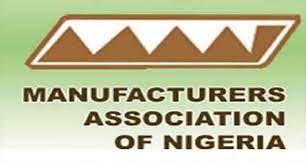Manufacturers Association of Nigeria (MAN) has urged President Bola Tinubu to give due consideration to challenges of manufacturing sector and direct the implementation of Expatriate Employment Levy (EEL) be discontinued.
The Director General, MAN, Mr Segun Ajayi-Kadir, said this on Tuesday in Lagos, in reaction to the Federal Government’s announcement on Feb. 27, about a mandatory annual levy for organisations employing expatriate workers.
The News Agency of Nigeria (NAN), reports that the development requires a pay of 15,000 dollars (£12,000) for an expatriate director and 10,000 dollars for other expatriate employees.
According to government, the move is to encourage foreign companies to employ more Nigerian workers.
Ajayi-Kadir expressed concern over the Expatriate Employment Levy (EEL), saying its unintended consequences on the manufacturing sector could not be accommodated at this time.
He said the development was potentially an albatross to the realisation of President Bola Tinubu’s private sector led economy aspirations.
He added that the levy would ruin the trust and confidence he was striving hard to build among domestic and foreign private investors.
“The unintended negative consequences on the manufacturing sector are humongous and cannot be accommodated at this time of evident downturn in our economy.
“As the major investors and employers in Nigeria, manufacturers believe that while the levy is ostensibly primed to promote local employment, improve foreign exchange and non-oil income earnings, the levy will regrettably deter foreign direct investments.
“It will also discourage domestic investors who have partnership with foreign investors and undermine knowledge transfers that are critical for Nigeria’s economic growth,” he said.
The MAN DG added that the imposition of EEL posed potential impact on the manufacturing sector and the economy at large.
This, he stated, would in turn mark an unwarranted and unprecedented addition to the cost of doing business in Nigeria, especially to manufacturers.
Ajayi-Kadir noted that the manufacturing sector was already beset with multidimensional challenges.
He said 335 manufacturing companies in 2023 became distressed, 767 shut down, while the capacity utilisation in the sector declined to 56 per cent and inventory of unsold finished products increased to N350 billion.
All these developments, he said, meant that the sector could not afford another disincentive to increased investment and portfolio expansion.
“MAN is concerned that the EEL contradicts our international trade agreements and the obligations contained therein.
“For instance, Nigeria is a signatory to the African Continental Free Trade Area [AfCFTA] agreement. One of the pillars of the AfCFTA is the free movement of skilled labour across the continent, which is complemented by non-discriminatory measures against fellow Africans.
“Quite importantly, this could trigger retaliatory measures against Nigerians working across Africa and other nations of the world; frustrates regional integration efforts and portray Nigeria as a spoiler among her peers.
“The policy will surely undermine the administration’s determination to position Nigeria as an attractive global investment destination and may engender a cold welcome in Mr President’s future foreign investment promotions endeavours,” he said.
He stated that the levy, if not reversed, may expose the Federal Government to a plethora of lawsuits that would distract it from the task of salvaging the current dire situation of our economy.
Ajayi-Kadir said the directive to discontinue the EEL was in the overall interest of national economy and was urgently needed to reassure domestic and foreign investors of Nigeria’s commitment to an investment friendly environment.
He urged President Tinubu to direct the Nigeria Immigration Service to refrain from enforcing compliance with the policy. (NAN)
























